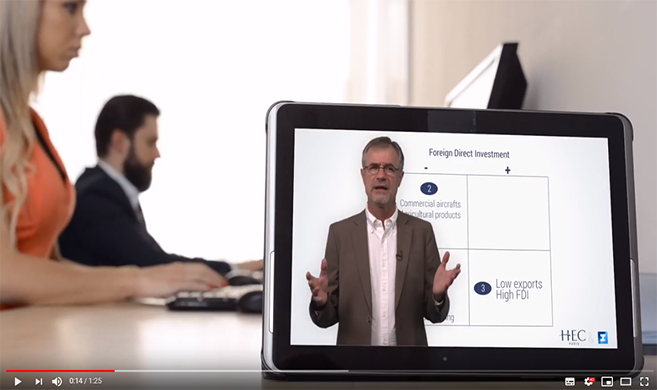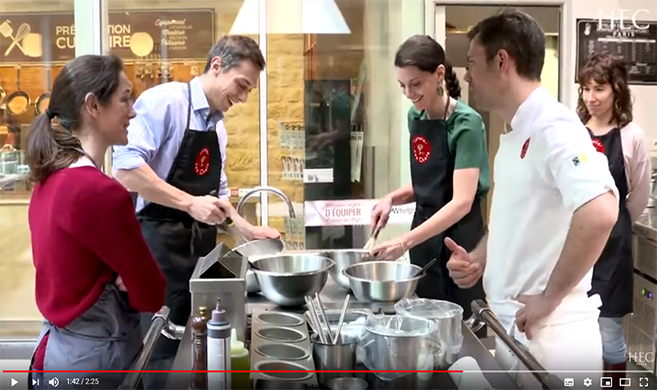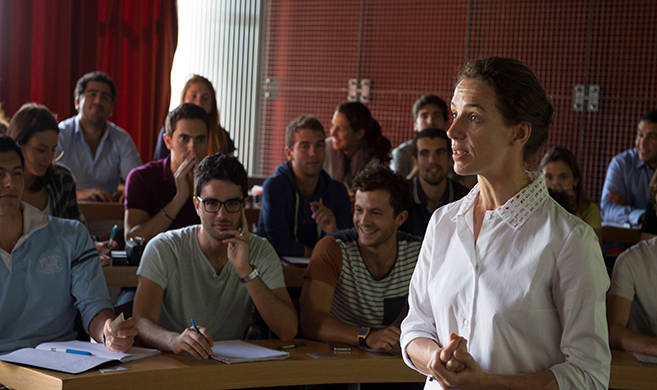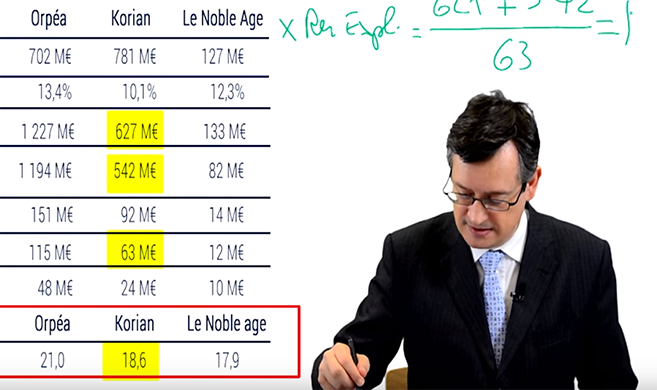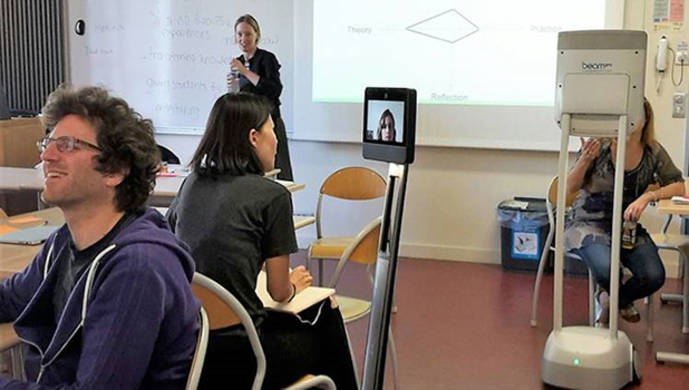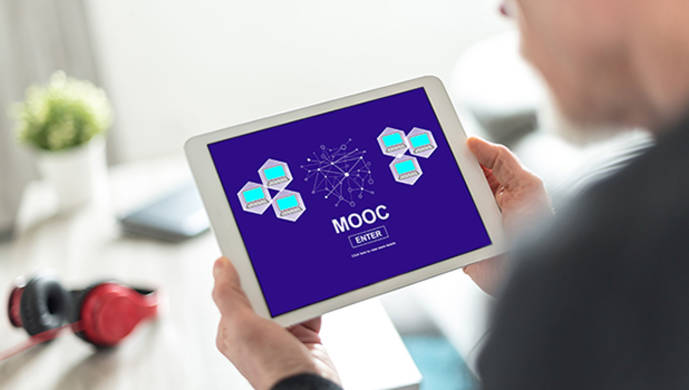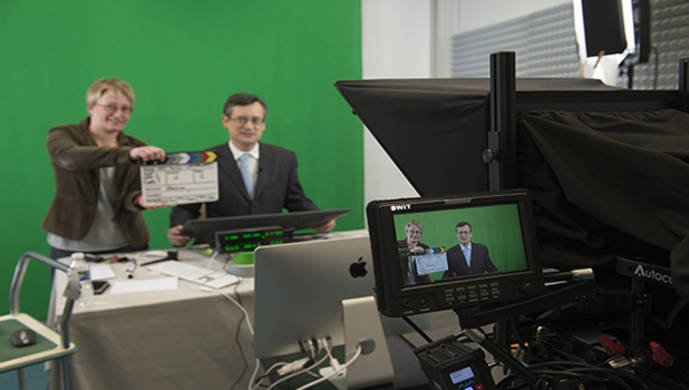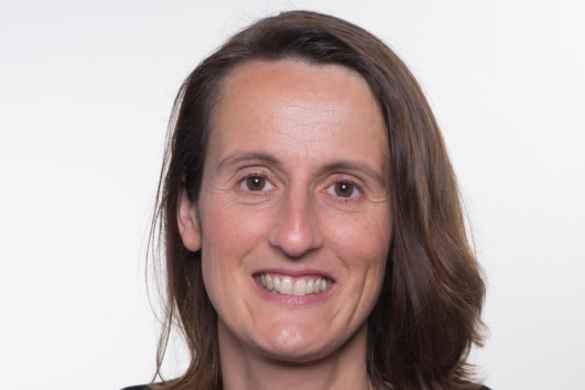Many of our faculty were invited to join an institutional project (like MSIE, the online MSc in Innovation and Entrepreneurship that involved 25 professors) or they started with some experimentation and then scaled up.
Most of them said the experience was transformative. That they will never teach the same way again. Professors said the method of creating their courses online also improved their teaching methods in the classroom, because they need to clarify their objectives, develop and diversify teaching strategies, and keep the students’ attention.
Just do it!
Pierre Dussauge, Professor of Business Strategy: "The world of online learning is constantly evolving, and it is hard to predict where it is all going, with digitalization set to affect different disciplines in different ways. If we wait for it to be perfect before we get involved, then we will never get involved, which would be a pity. It’s a matter of familiarizing oneself with digital tools and platforms and using trial-and-error to figure out what works and what doesn’t. Digital education is like moving away from being an onstage actor in a theater play to producing a movie." Learn more about Pierre Dussauge’s course “Strategy @ HEC Paris” here (see the cover photo).
Online teaching is teamwork
Tomasz Obloj and Giada Di Stefano, on their video case studies: "Developing Organizing for Innovation was a one of a kind experience. We put so much work in it, with so much joy and passion. We went through hard times, when the pieces did not seem to fit. Times when we thought that we started so many threads that it’d be impossible to tie them back together. And then many (and many more) moments of laughter and fun. This was such a great learning experience!
We got to interact with amazing people. We met entrepreneurs from all over Europe and spent endless hours in the rain, looking for a window of opportunity to shoot a 10-second scene. We had to rethink our way to deliver content, and really, truly engage in teamwork - with the production team, with the teaching assistants, and with all the other many people involved. And to be honest, despite all the work, we would do it all over again tomorrow."
"Thank you Giada di Stefano and Tomasz Obloj for the well-presented concepts in a very didactic manner! The companies you have chosen for your immersion as examples are top notch and very representative. It was a pleasure to take this course," a student.
The course “Organizing for Innovation” is part of the MSIE Online Master's but available for free as teaser.
Online opens up new ways of being creative
Anne Laure Sellier*, teaching on creativity at MSIE: "Developing a course fully online for HEC was as stimulating as it was challenging. It forces you to consider obvious pedagogical issues, such as the fact you cannot check real-time how your content "lands" on students, or the fact you cannot see where they have difficulty understanding and would need more elaboration on your side. It also enables you to consider new approaches you can adopt thanks to technology. For instance, consider that your students may be at home when taking your class. You can actually ask them to be in their kitchen and start cooking something if that activity comes in handy. Many business concepts can become more intuitive using cooking (if that is not obvious, take the course!).
Ultimately, you push yourself as an instructor in pitch-dark new territory, which is immensely fun, and I remain eager to get students' feedback on their experience. So many different students, so much to learn... The few exchanges I've had with students who took the course a long distance away have been the best reward for me so far, it keeps getting me thinking of new ways to teach with these fast-evolving tools.”
"Only twice in my life have I really been sad to see a course end and tonight was one of those nights. I have never seen a video program be delivered in the manner Professor Sellier accomplished. She came across the video, right into my office and I was spellbound, by both her and the material! This field of study was nascent when I went to University and it's my passion. I am in love with New Product design and I have already implemented much of what Professor Sellier imparted," a student.
*Anne Laure Sellier received the 2019 Prix Vernimmen Pedagogy Award for the quality of her pedagogy on creativity.
Virtual classrooms to reduce anxiety
Denis Gromb runs two webinars when teaching corporate finance in the Executive MBA: "The first webinar aims to introduce the course and… reduce anxiety about the subject matter. I limit generalities to a minimum and start a case study that we will finish in class. It’s very short so participants can read it as we go and still enjoy the session. The second one is a debrief of the exam. I cover slides reviewing the exam, and participants post questions, which I then answer for everyone. The technology works smoothly, and the tech team makes things safe and easy. Now we have done a couple of iterations, I feel I could probably do it alone, pretty much like a glorified Skype call." See Professor Denis Gromb's webinar on private equity and infrastructure here.
Blended Learning increased positive evaluations of the professors
Building on his online course production for the Executive Online Certificates, Pascal Quiry reduced the in-class course sessions for "Corporate Finance" in the Grande Ecole Master by replacing them with online content. This core course is taught in parallel by a team of professors. «One of the first positive consequences is that course evaluations have increased for all professors! This new format has also allowed to standardize the course content and supporting material thanks to the online resources which are the same for all students. They can now learn at their own pace during the week and can post their questions on the discussion board if they need help." Learn more in this interview of Pascal Quiry.
A successful flipped classroom experiment to teach Accounting
Pascale Defline is reversing the traditional learning environment by delivering instructional content online, outside of the classroom. “I wanted to make students much more active during the class, with the objective of making the covered concepts stay in their mind long after the final exam! They appreciate the possibility of working at their own pace, whenever they want. They also like working in groups a lot, explaining to each other what they have not well understood. Moreover, the explanations I give in class are generally more personalized. Now the assessment is more balanced since it is composed of the online quizzes, the in-class case studies and a final test." Learn more in this interview with Pascale Defline.
"The flipped classroom format is awesome: online course + group work in class. It really helps us to better assimilate the concepts, forcing us to get involved in the group projects," a student.
